Zebra Mussel Prevention
OFFICIAL RESOURCE FOR ZEBRA MUSSEL PREVENTION FROM THE CSCD
Current Indiana Zebra Mussel Waters
CURRENT NEWS
At the April 20th Board Meeting the CSCD Board enacted Resolution 2021-04 stating that all equipment requiring a CSCD Barge Permit and all communal trailers that go to other bodies of water SHALL decontaminate every time they leave and return to the CSCD. Decontamination SHALL take place at the CSCD Office and be monitored by CSCD Staff. The CSCD will provide the appropriate means of decontamination and there will be a $25 Decontamination Fee each time. See the Resolution Here.
Of all the invasive species in the Midwest, the zebra mussel is considered the most dangerous threat. Originally brought to the US via massive cargo ships through the canals and channels of the Great Lakes, the zebra mussels quickly decimated the Great Lakes throughout the '80s and '90s. The zebra mussels have spread like wildfire throughout the midwest and now are making it's way out west into several watersheds. Indiana has also become a breeding ground for the mussel with several waterways known to be currently infested. Geist Reservoir in Indianapolis and Brookville Reservoir are the closest bodies of water to the CSCD known to be infected.
Zebra mussels are so destructive due to the sheer numbers and multiplication rates. Two zebra mussels can create up to TWO MILLION baby zebra mussels (called veligers) in just one year. They attach to any hard surface including boats, rip rap, docks, dock ladders, buoys, and other mussels. If zebra mussels were to infect Cordry-Sweetwater the ecological and recreational impact would be significant. The beach would be closed due to the sharp nature of the mussel which will cut the feet of anyone walking in the water. Buoys would not be able to be used as they would sink; any boats left in the water could have maintenance problems, dock ladders couldn't be left in the water. When the lakes go down during drier months, the mussels that have attached to rip rap just under the water will become exposed and the smell is nearly unbearable. The same would be true for the mussels that homeowners would be scraping off their dock posts and boat lifts on a daily basis.
The CSCD Board is taking action to prevent such an infestation and nightmare scenario. We are one of only a few lakes in Indiana that are putting together a prevention program. This page is your resource for everything zebra mussel. From educational information, to presentations, to recommendations, and ultimately to any rules that the CSCD creates regarding zebra mussel prevention. Our sincere hope is that all Freeholders will educate themselves about the harms these mussels would cause and help us keep these pristine lakes free of zebra mussels.
CSCD Zebra Mussel Prevention Policy
Have you been on a body of water with zebra mussels? If you have or if you aren't sure PLEASE do one of the following to prevent an invasion of zebra mussels at Cordry-Sweetwater.
1. High-Pressure & High-Temperature wash of at least 2,000 psi and 140-degree water. Contact time is 10 minutes and no chemicals or additives are needed. Don't forget to wash out the boat motor with muffs.
2. Dry your equipment for at least 5 days. You may dry everything with a towel if you need to launch sooner than 5 days, but everything must be COMPLETELY dry.
3. Use a 10% bleach solution with a 5 minute contact time. Alternative use a Virkon Aquatic solution(non-corrosive) with a 10 minute contact time. Make sure the equipment is completely cleaned before using either solution and rinse off the equipment prior to launch.
National & State Educational Resources
Interactive map with timeline of zebra mussel infestation in America
Indiana Clean Lakes Program Zebra Mussel Brochure
Article on zebra mussels at Geist Reservoir
CSCD Educational Resources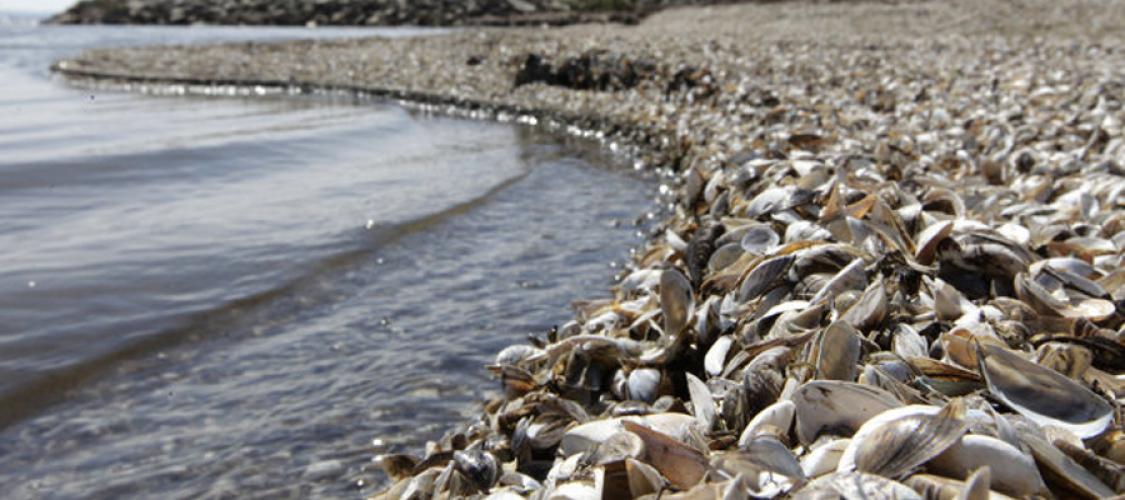
Board Presentation on Zebra Mussels
www.sites.google.com/view/cscdboat
Related Documents
- August 2023 ZM minutes ( PDF / 125 KB )
- September 2023 ZMP Agenda ( PDF / 57 KB )
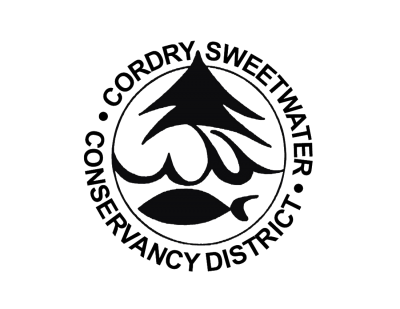

 Zebra mussels cover a beach
Zebra mussels cover a beach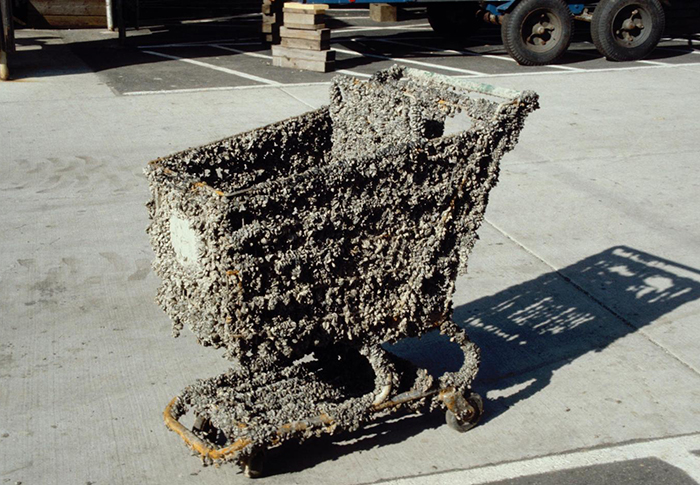 Zebra mussels cover a submerged grocery cart
Zebra mussels cover a submerged grocery cart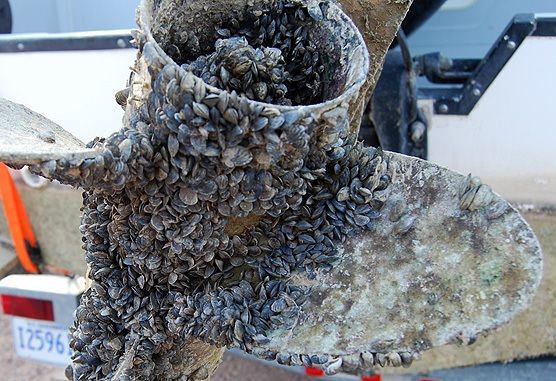 Zebra mussels on a boat prop
Zebra mussels on a boat prop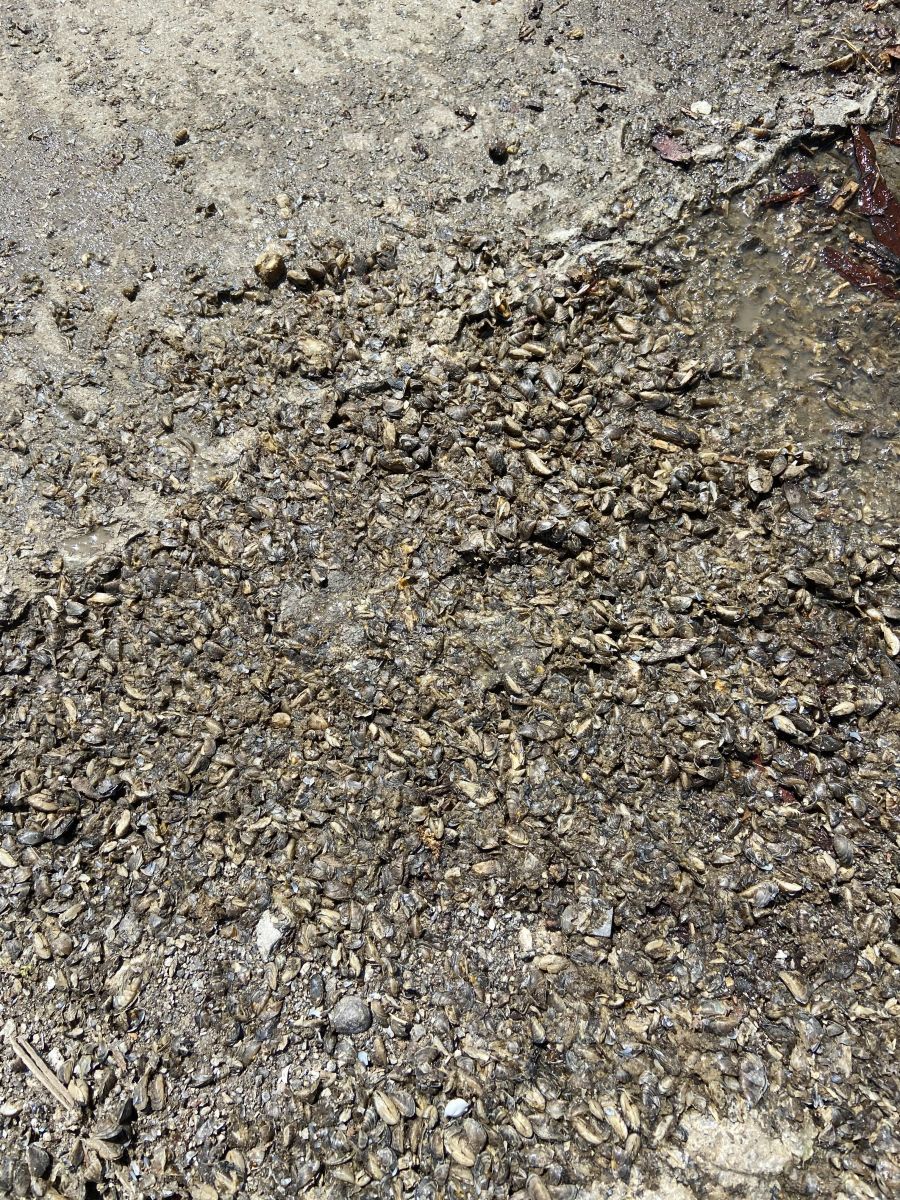 Sharp zebra mussel shells litter the boat ramp at Geist Reservoir
Sharp zebra mussel shells litter the boat ramp at Geist Reservoir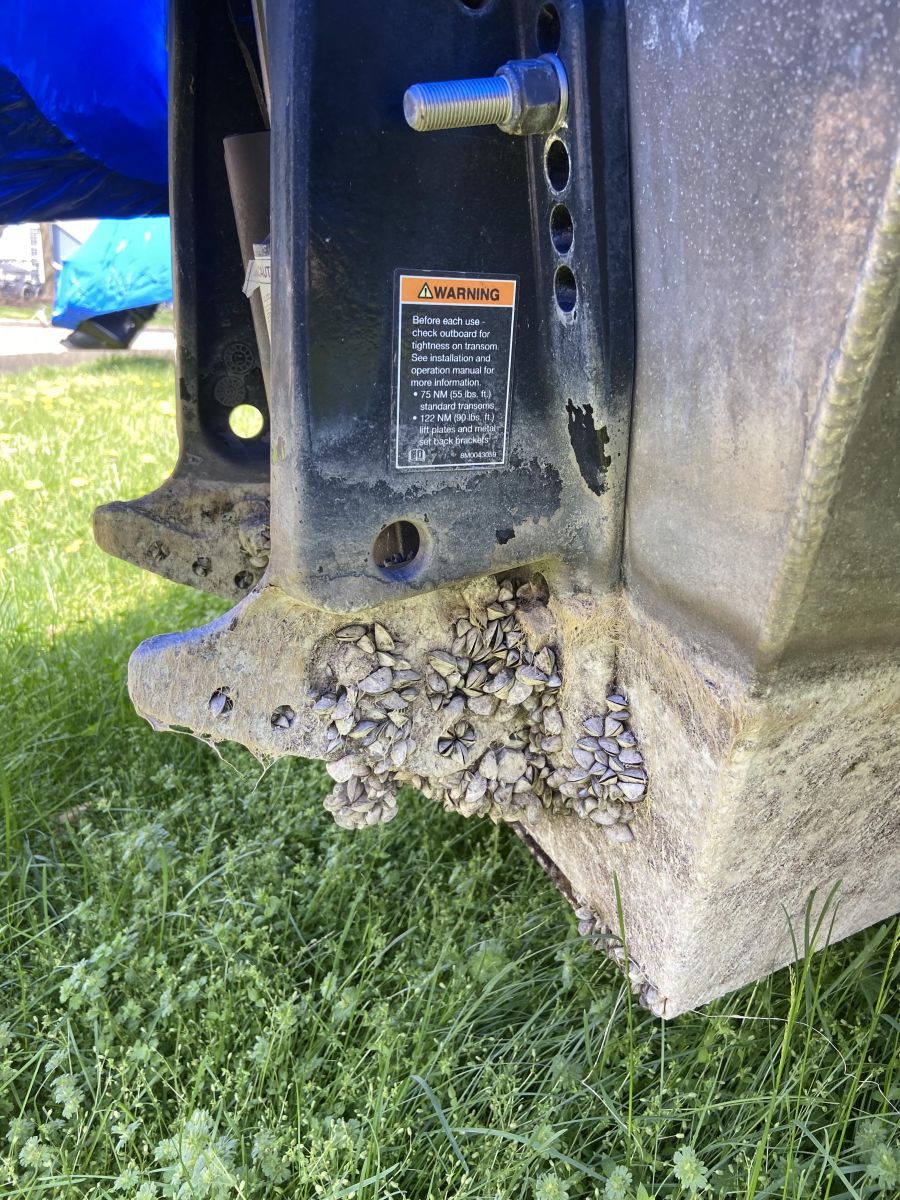 Zebra mussels shortly after scaling them off at Geist Reservoir
Zebra mussels shortly after scaling them off at Geist Reservoir